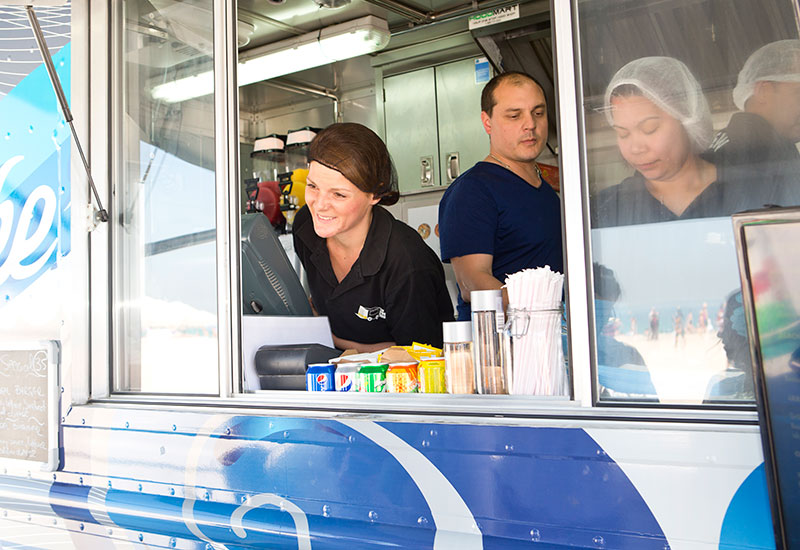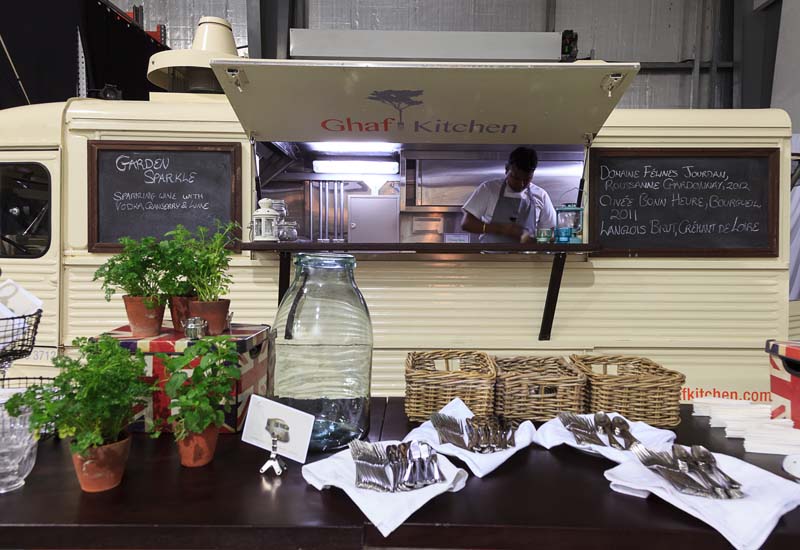But why has this concept been so popular with the country’s restaurateurs? It appeals to the broad population for a variety of reasons — for a largely Western expat population, food trucks bring with them a sense of nostalgia, a touch of home, while its appeal for the locals and long-time residents is one of novelty.
People in the F&B industry are also seeing it as a way to further promote their brands, while new entrants are looking at the smaller start-up costs as beneficial to their cash-strapped cause.
Assadourian says: “Indeed there is a movement with regard to food trucks worldwide. Why it’s particularly important in Dubai is that it is increasingly important across all sectors for entrepreneurial initiatives to take place.

| Advertisement |
“There have been many of those initiatives in many different sectors, but not many within the culinary sector.” He adds that the current make-up of the city is very franchise-driven. “For Dubai to position itself on the world map from a culinary perspective, it is very, very important for home-grown brands to come to the forefront.
Mobile food as a channel for those entrepreneurs is a very appropriate one because it limits their risk in terms of exposure and investment compared to your traditional brick-and-mortar establishments.
“It therefore encourages more of these entrepreneurs to take that plunge and share their love for food with the consumers of the world that are in Dubai, which they may not have traditionally done given the large risk associated with any brick-and-mortar establishment.”
Moti Roti founder Tahir Shah, who is soon going to have his own food truck by working with Eat Street, echoes this sentiment and says: “The upfront cost is less compared to renting and fitting out a location in Dubai. You don’t have to pay super-premium rents, and you have lower overheads than traditional brick-and-mortar restaurants. So for an entrepreneur, it’s easier.”
He continues: “Definitely, the culture is shifting away from fine dining and commercial malls.” Vida Hotels & Resorts executive chef Spencer Lee Black agrees: “It was definitely a missing link in the country.” Figjam business development manager Simon Duke adds: “It’s not a new concept globally and is a common sight in most major cities around the world. There seems to be a fascination here in the UAE, as they’ve not been seen here before.
Also the trend is moving away from five-star fine dining towards more street, traceable, local produce, and trucks are one of the outlets that sell and promote this.”
However, Assadourian says entrepreneurs need to be realistic about their expectations from a truck. “First and foremost, many entrepreneurs who are considering mobile food as a vehicle to launch their food concepts have been recently influenced by the movie Chef, which romanticises the idea of a food truck, and the reality is, the operation of a food truck is not a glorious one.
It’s quite a lot of hard work, maybe even more so than some of the traditional establishments, and often people miscalculate the enormous amounts of work it takes — not just to get it started, but to actually run it.”
Shah also says the fad is slightly concerning. He explains that if big brands are allowed to run food trucks, “trucks will be cramming the roads and there’s nothing we can do about that”.
Article continues on next page ...










 Search our database of more than 2,700 industry companies
Search our database of more than 2,700 industry companies










May 6, 2015 , Canada
As a Company who has manufactured American Food Trucks for over 15 years we did see an increase in inquiries fro the UAE and especially Dubai over the 3+ years. Even at the very early days in America there were hurdles to jump over as with any new venture where city councils are not sure how to t...